Exponential Functions
An exponential function is a mathematical function of the form f(x) = a * b^x, where a and b are constants and b is a positive real number not equal to 1. The base, b, is raised to the power of x, making the function grow at an increasing rate as x increases.
Key Concepts
- Base: The base, b, determines the growth or decay rate of the function. If b > 1, the function shows exponential growth. If 0 < b < 1, the function shows exponential decay.
- Exponential Growth: When the base, b, is greater than 1, the function increases at an increasing rate as x increases.
- Exponential Decay: When the base, 0 < b < 1, the function decreases at an increasing rate as x increases.
- Domain and Range: The domain of an exponential function is all real numbers, and the range depends on whether the function represents growth or decay.
- Graphing Exponential Functions: Exponential functions have a characteristic curve that increases or decreases rapidly based on the value of the base, b.
Study Guide
To master the topic of exponential functions, it's important to focus on the following key areas:
- Understanding the concept of exponential growth and decay.
- Identifying the base of an exponential function and determining whether it represents growth or decay.
- Exploring the domain and range of exponential functions.
- Graphing exponential functions and recognizing their characteristic curves.
- Solving problems involving exponential growth and decay.
Practice working with different values of a and b to understand their impact on the behavior of exponential functions.
Remember to seek help from your teacher or tutor if you encounter any challenges in understanding these concepts.
.◂Math Worksheets and Study Guides Seventh Grade. The Pythagorean Theorem
Study Guide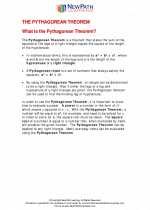 The Pythagorean Theorem
The Pythagorean Theorem  Study Guide
Study Guide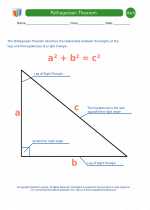 Pythagorean Theorem Definitions
Pythagorean Theorem Definitions  Worksheet/Answer key
Worksheet/Answer key The Pythagorean Theorem
The Pythagorean Theorem  Worksheet/Answer key
Worksheet/Answer key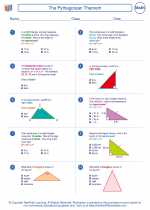 The Pythagorean Theorem
The Pythagorean Theorem  Worksheet/Answer key
Worksheet/Answer key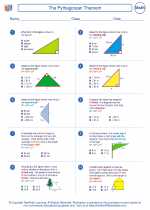 The Pythagorean Theorem
The Pythagorean Theorem  Worksheet/Answer key
Worksheet/Answer key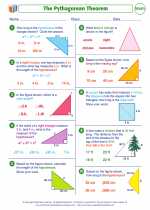 The Pythagorean Theorem
The Pythagorean Theorem  Worksheet/Answer key
Worksheet/Answer key Pythagorean Theorem Distance Problems
Pythagorean Theorem Distance Problems  Worksheet/Answer key
Worksheet/Answer key Pythagorean Theorem Problems
Pythagorean Theorem Problems  Worksheet/Answer key
Worksheet/Answer key Pythagorean Theorem Distance Problems
Pythagorean Theorem Distance Problems  Worksheet/Answer key
Worksheet/Answer key Pythagorean Theorem Problems
Pythagorean Theorem Problems  Worksheet/Answer key
Worksheet/Answer key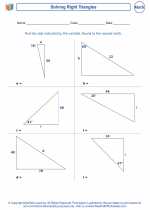 Solving Right Triangles
Solving Right Triangles  Worksheet/Answer key
Worksheet/Answer key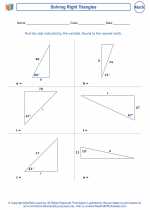 Solving Right Triangles
Solving Right Triangles 

 Study Guide
Study Guide
 Worksheet/Answer key
Worksheet/Answer key
 Worksheet/Answer key
Worksheet/Answer key
 Worksheet/Answer key
Worksheet/Answer key
 Worksheet/Answer key
Worksheet/Answer key
 Worksheet/Answer key
Worksheet/Answer key
 Worksheet/Answer key
Worksheet/Answer key
 Worksheet/Answer key
Worksheet/Answer key
 Worksheet/Answer key
Worksheet/Answer key
 Worksheet/Answer key
Worksheet/Answer key
 Worksheet/Answer key
Worksheet/Answer key

The resources above cover the following skills:
Geometry (NCTM)
Analyze characteristics and properties of two- and three-dimensional geometric shapes and develop mathematical arguments about geometric relationships.
Create and critique inductive and deductive arguments concerning geometric ideas and relationships, such as congruence, similarity, and the Pythagorean relationship.